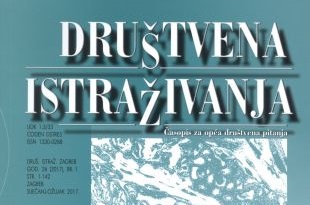RELIGIJSKI POJAM TOLERANCIJE U PATRISTIČKO DOBA
THE RELIGIOUS CONCEPT OF TOLERANCE IN THE PATRISTIC AGE
Author(s): Tomislav Zdenko TenšekSubject(s): Ancient World, Middle Ages, Sociology of Religion, History of Religion
Published by: Institut društvenih znanosti Ivo Pilar
Keywords: Tolerance and religion; Patristic age;
Summary/Abstract: The discourse on tolerance in the patristic age should be observed within the breakthrough of Christianity into the Greco-Roman world, which had been religiouslymarked by polytheism. ln the first three centuries Christianity was persecuted because it decisively rejected religious adoration of the emperor. Generally speaking, it was an age in which the state displayed a lack of tolerance for the Christians. During the Constantine turning-point, when the Church was given religious freedom, although the Church demonstrated evangelical tolerance, the Christians themselves adopted intolerant attitudes towards paganism. Some ecclesiastical writers, amongst which stands the well-known authority, Augustine, have with their sometimes awkward interpretations of the Gospel, laid the foundation for the theoretical justification of force in issues of accepting faith and of repression towards religious enemies.
Journal: Društvena istraživanja - Časopis za opća društvena pitanja
- Issue Year: 5/1996
- Issue No: 22
- Page Range: 389-398
- Page Count: 10
- Language: Croatian

